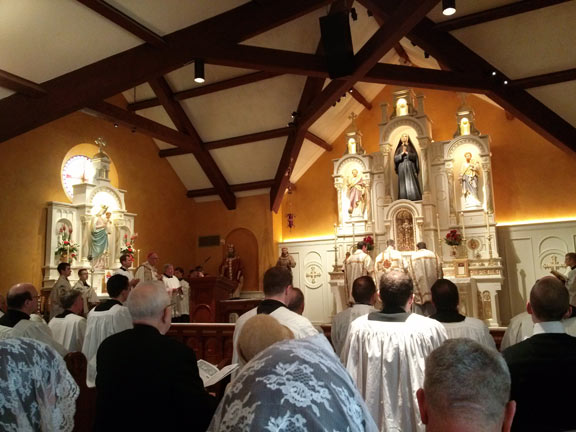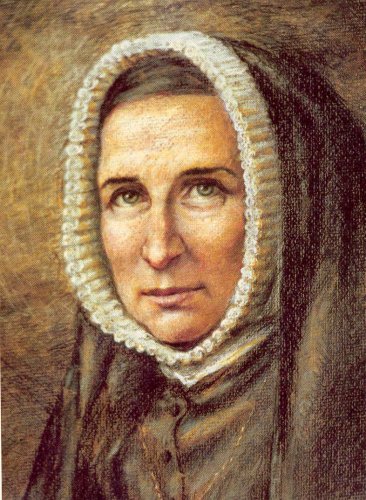Thursday of week 33 in Ordinary Time  St. Rose Philippine Duchesne Catholic Church Kansas City Readings at MassLiturgical Colour: Green.
'Heaven preserve us from forsaking the Law and its ordinances'The commissioners of King Antiochus who were enforcing the apostasy came to the town of Modein to make them sacrifice. Many Israelites gathered round them, but Mattathias and his sons drew apart. The king’s commissioners then addressed Mattathias as follows, ‘You are a respected leader, a great man in this town; you have sons and brothers to support you. Be the first to step forward and conform to the king’s decree, as all the nations have done, and the leaders of Judah and the survivors in Jerusalem; you and your sons shall be reckoned among the Friends of the King, you and your sons shall be honoured with gold and silver and many presents.’ Raising his voice, Mattathias retorted, ‘Even if every nation living in the king’s dominions obeys him, each forsaking its ancestral religion to conform to his decrees, I, my sons and my brothers will still follow the covenant of our ancestors. Heaven preserve us from forsaking the Law and its observances. As for the king’s orders, we will not follow them: we will not swerve from our own religion either to right or to left.’ As he finished speaking, a Jew came forward in the sight of all to offer sacrifice on the altar in Modein as the royal edict required. When Mattathias saw this, he was fired with zeal; stirred to the depth of his being, he gave vent to his legitimate anger, threw himself on the man and slaughtered him on the altar. At the same time he killed the king’s commissioner who was there to enforce the sacrifice, and tore down the altar. In his zeal for the Law he acted as Phinehas did against Zimri son of Salu. Then Mattathias went through the town, shouting at the top of his voice, ‘Let everyone who has a fervour for the Law and takes his stand on the covenant come out and follow me.’ Then he fled with his sons into the hills, leaving all their possessions behind in the town. At this, many who were concerned for virtue and justice went down to the desert and stayed there.
I will show God’s salvation to the upright. The God of gods, the Lord, has spoken and summoned the earth, from the rising of the sun to its setting. Out of Zion’s perfect beauty he shines. I will show God’s salvation to the upright. ‘Summon before me my people who made covenant with me by sacrifice.’ The heavens proclaim his justice, for he, God, is the judge. I will show God’s salvation to the upright. Pay your sacrifice of thanksgiving to God and render him your votive offerings. Call on me in the day of distress. I will free you and you shall honour me.’ I will show God’s salvation to the upright.
Alleluia, alleluia! Let your face shine on your servant, and teach me your decrees. Alleluia!
Alleluia, alleluia! Harden not your hearts today, but listen to the voice of the Lord. Alleluia!
Jesus sheds tears over the coming fate of JerusalemAs Jesus drew near Jerusalem and came in sight of the city he shed tears over it and said, ‘If you in your turn had only understood on this day the message of peace! But, alas, it is hidden from your eyes! Yes, a time is coming when your enemies will raise fortifications all round you, when they will encircle you and hem you in on every side; they will dash you and the children inside your walls to the ground; they will leave not one stone standing on another within you – and all because you did not recognise your opportunity when God offered it!’ The readings on this page are from the Jerusalem Bible, which is used at Mass in most of the English-speaking world. The New American Bible readings, which are used at Mass in the United States, are available in the Universalis apps, programs and downloads. |


